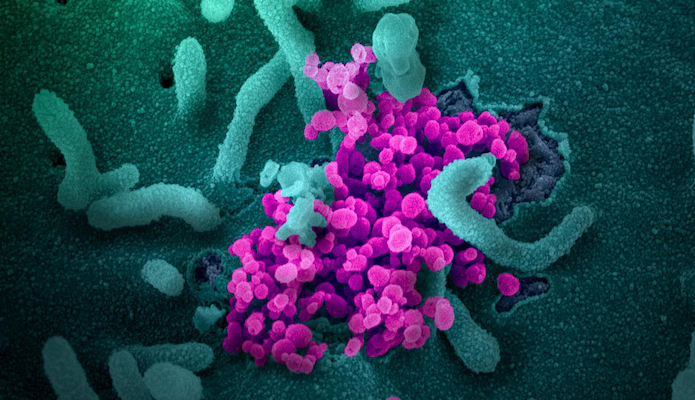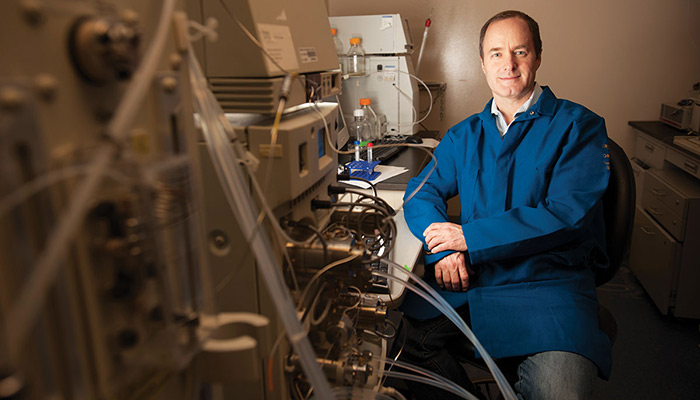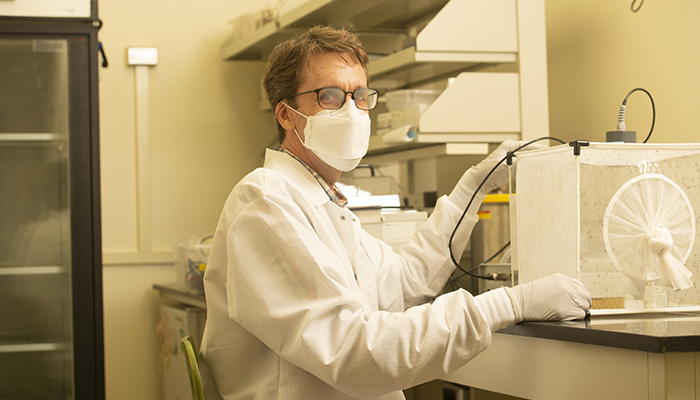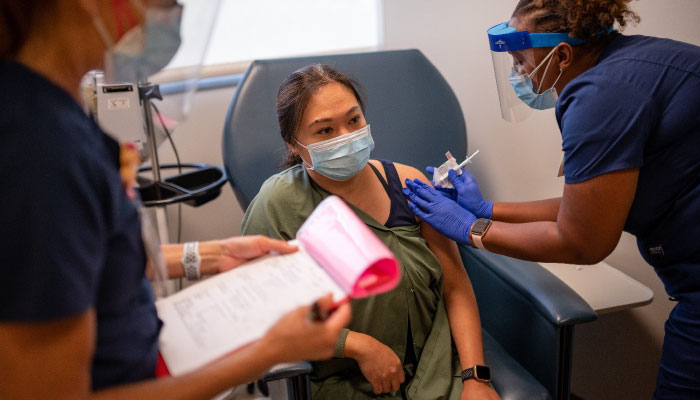UC Davis Licenses Novel COVID-19 Lung Treatment Using Inhaled Statins to InVixa, Inc
The University of California, Davis and InVixa Inc., a biopharmaceutical startup, have executed a licensing agreement for a novel method using inhaled statins to treat the severe respiratory disease known as COVID-19. The license, negotiated by the InnovationAccess team within the UC Davis Office of Research, provides exclusive access for InVixa to commercialize the technology developed at the university for COVID-19.
While statins are one of the most prescribed drugs on the market, typically used to treat cardiovascular diseases such as coronary artery disease and stroke by lowering cholesterol levels in the blood, some studies have demonstrated a potential link to improved outcomes in some lung diseases due to statins’ immune-modulatory properties.
Dr. Amir Zeki, associate professor in the Division of Pulmonary and Critical Care Medicine at UC Davis and co-founder of InVixa, began investigating the potential use of statins to treat asthma and chronic obstructive pulmonary disease (COPD) in 2007. At the time, pre-clinical studies showed a clear positive effect; however, subsequent human clinical trials using oral statins yielded mixed findings.
“While some people started to discount the potential and effectiveness of using statins to treat respiratory disease, I suspected it might have to do with the delivery method, and that with the oral route not enough of the drug was reaching the lung tissue,” said Zeki. “Scientific understanding of statins’ pharmacokinetic properties certainly supports this theory in principle, and ongoing work is testing this idea in humans.”
Zeki began researching an alternative approach by delivering the statins directly into the airways via inhalation using animal models. The use of inhaled drugs is common in clinical practice to treat airway diseases such as asthma and COPD, albeit using different FDA-approved drugs.
Zeki tested the idea on rodents, followed by non-human primates at the California National Primate Research Center at UC Davis. “Depending on the statin tested, we found we could give appropriate statin doses via the airways which were well-tolerated, and with beneficial effects,” he noted. “That is when we pivoted to seeing this as a large opportunity to develop better treatments for our patients.”
A ‘Pandemic’ Pivot
Working in the Intensive Care Units with his physician colleagues, Zeki was on the front lines when the COVID-19 pandemic reached the United States. He quickly learned about the clinical manifestations of COVID-19 and the severe respiratory illness caused by the SARS-CoV-2 coronavirus. In response, he pivoted with his team to explore the use of inhaled statins to protect the lungs against the virus’s damaging effects.
Existing observational research has shown that patients taking oral statins regularly prior to and during their illness had faster recovery from the flu, along with lower mortality rates. A recent study by researchers at UC San Diego Health established a similar effect in COVID-19 patients, where patients taking oral statins had a reduced risk of developing severe COVID-19 disease, as well as faster recovery times. Another retrospective clinical study in China on nearly 14,000 patients showed that statin use was associated with a significant reduction in mortality among patients with COVID-19.
“These results shed some light and revealed the potential role statins could play in the treatment of COVID-19. However, these were limited to the conventional oral application,” said Zeki. “Our research is looking at the impact of using an aerosolized delivery mechanism to explore the full potential of these drugs.”
He added, “The inhaled delivery approach allows for statin doses with a potentially greater local airway therapeutic effect. Given what we know of statin pharmacokinetics, their physiochemical properties, and generally low oral bioavailability, as well as prior negative, or equivocal, clinical trials using oral statins to treat other respiratory conditions, we believe our approach has a strong chance of achieving a beneficial clinical effect in COVID-19.”
In collaboration with UC Davis virologists, the team began pre-clinical cell culture studies in 2020 and will begin experiments using COVID-19 rodent models in early 2021 to evaluate the statins’ efficacy against SARS-CoV-2 infection. Zeki’s lab is using primary human airway epithelial cells grown in air-liquid interface to elucidate governing mechanisms. The lab is working in collaboration with Professor Stefan Rothenburg in the Department of Medical Microbiology and Immunology. In parallel, Zeki is also preparing to conduct animal studies to address inhaled statin efficacy in two COVID-19 rodent models with Professor Lark Coffey in the Department of Pathology, Microbiology, and Immunology at the School of Veterinary Medicine.
Supported by the campus’ Venture Catalyst program, Zeki and colleagues launched the new company, InVixa, to commercialize the novel application. UC Davis’ Venture Catalyst unit offers several innovative programs that bridge the gap between early-stage research and commercialization. InVixa participated in Venture Catalyst’s START program, which provides training, resources, and networking opportunities to help university-affiliated startups succeed.
“The UC Davis Venture Catalyst unit played a pivotal role getting us off the ground,” said Zeki. “I can’t imagine getting to this point without their guidance and supporting programs.”
David Lubarsky, Vice Chancellor for Human Health Sciences and CEO of UC Davis Health, said, “This is another excellent example of leveraging UC Davis Health’s scientific resources and entrepreneurial spirit to explore solutions for crucial health care needs. I applaud Dr. Zeki and his team for pursuing novel approaches based on their direct clinical experiences and research. There is a tremendous need to help patients facing respiratory failure, which has been the leading cause of mortality for patients with COVID-19.”
InVixa is continuing its pre-clinical testing, which includes pharmacokinetic studies, to identify a lead candidate for formulation. Thereafter, the company plans to pursue human clinical trials later in 2021.
Contact
AJ Cheline, UC Davis Office of Research
530-752-1101
[email protected]
Latest News & Events















